Watch: What do kids think of politicians?published at 12:11 BST 6 June 2017
 BBC Radio 5 live
BBC Radio 5 live
Pupils from Knelston County Primary School in Gower offered their political opinions to BBC Radio 5 live...
Party leaders in last day of campaigning across UK
Theresa May says human rights laws will not block terror fight
Labour's Lyn Brown to stand in for shadow home secretary Diane Abbott, who is ill
Voters go to the polls on Thursday
Esther Webber and Marie Jackson
 BBC Radio 5 live
BBC Radio 5 live
Pupils from Knelston County Primary School in Gower offered their political opinions to BBC Radio 5 live...
A quick upsum of the morning:
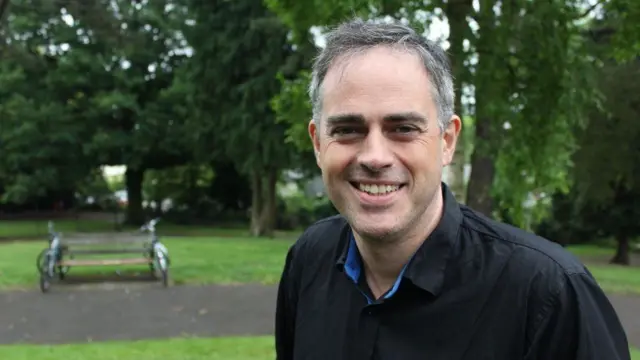
Jo Coburn will be joined by the Green Party co-leader, Jonathan Bartley, to discuss the latest general election news including Boris Johnson’s speech on Brexit and trade.
And there will be a film from Bristol where reporter Adam Fleming asks voters what they make of the Green policy of a shorter working week,
While Jenny Kumah meets the candidates in Wrexham, a traditional Labour seat, being targeted by the Conservative campaign.
Allow X content?
This article contains content provided by X. We ask for your permission before anything is loaded, as they may be using cookies and other technologies. You may want to read X’s cookie policy, external and privacy policy, external before accepting. To view this content choose ‘accept and continue’.
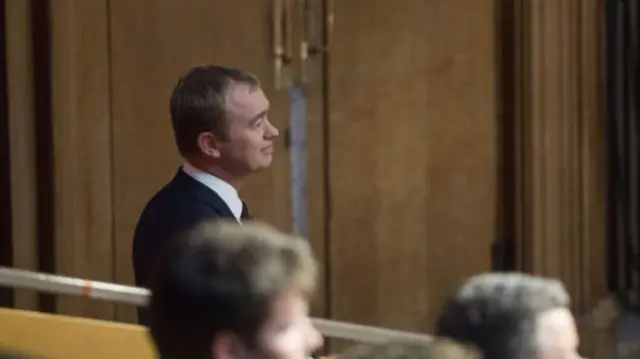 Image source, PA
Image source, PATim Farron insists the Liberal Democrats could double their number of MPs to 18 despite poor poll ratings.
"As things stand we look to be the only opposition party that will make progress in this election," he tells the Press Association.
He denied that his party had chosen not to visit Cornwall and Devon in the run-up to polling day because it had given up on winning them back.
"Not at all. I've probably been to Cornwall more than anyone else in the last few months. We are trying to get to every region we can in the last couple of days and we are getting down to Bath, which is obviously in the West Country, and we are very, very hopeful of places like St Ives, North Cornwall and other places in the South West."
Is Theresa May so alarmed by the success of Jeremy Corbyn that she needs to call on Boris Johnson to be her political Heineken, he's asked - brought in to reach those parts of the country no other can reach?
"I have been engaging with you, with the voters of this country solidly for the last five weeks," the foreign secretary insists, before switching back to another attack on the Labour leader over his security views.
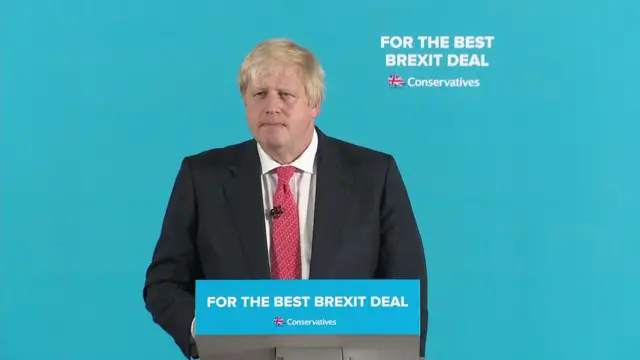
Straight to the issue of the day - police cuts and London Mayor Sadiq Khan's criticism of them.
Boris Johnson sticks to the line he used on his interview round this morning, insisting "everybody knows" he was able to "keep police numbers high" when he was mayor.
"We are investing in counter-terrorism," he insists, and are putting more armed officers on the streets.
"I want a government that supports those people," the foreign secretary adds.
He says that "until very recently" Jeremy Corbyn said he didn't support shoot-to-kill. That's a slight change in tone - earlier he seemed unhappy to accept that the Labour leader had changed his view at all. (The Labour leader said yesterday he had not changed his view on the issue)
"One-nation Conservatism" - that's a phrase we haven't heard much of in this campaign but Boris Johnson uses it now, stressing the party's commitment to public services, security and a strong economy.
It's a decidedly upbeat speech about the prospects of a post-Brexit future.
"We're a fantastic country and we can get it right."
With that, he's done and it's time for questions...
Boris Johnson makes it personal again, criticising shadow home secretary Diane Abbott - sarcastically calling her "the oracle" - and accusing Jeremy Corbyn of being "soft and muddle-headed" on terror and defence "for 30 years".
There is spontaneous applause from assembled Tory supporters when the foreign secretary refers to the "loony Left" who would be in charge of Brexit if Labour wins on Thursday.
He also says Mr Corbyn would have to work with two parties - the SNP and Lib Dems - who are "100% committed to reversing the referendum decision".
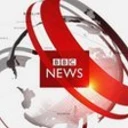 BBC News Channel
BBC News Channel
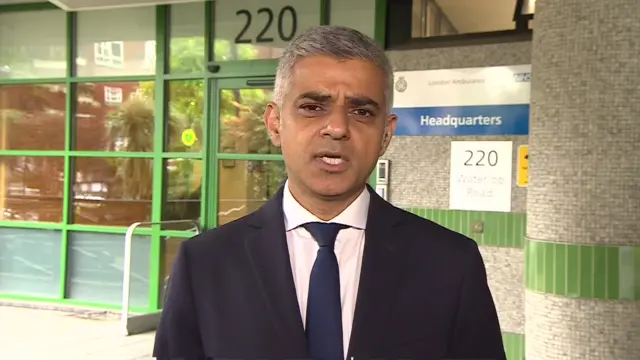
London mayor Sadiq Khan says Theresa May extended the invitation of a state visit, "in the context of Donald Trump, as a President, having a Muslim ban".
He suggests that a state visit is a "reward" for a world leader and, in this case, he thought "a state visit was improper".
He adds: "It is wrong for us to be rolling out the red carpet when we disagree with so much he's doing as a president."
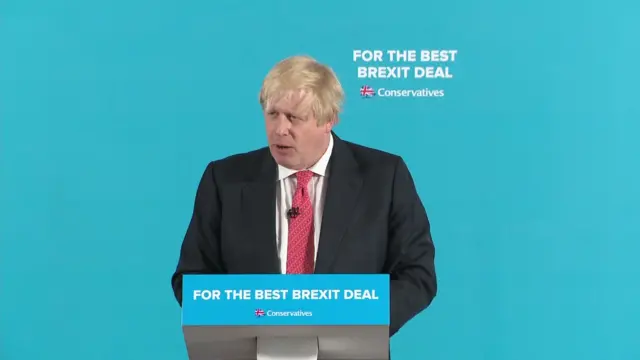
Foreign Secretary Boris Johnson has just taken to the lectern for his speech in Shildon, County Durham. The constituency is Labour heartland territory - but it's also resolutely Brexit-backing.
No surprise then that Mr Johnson opens with an argument for why Theresa May is the woman to deliver on the referendum vote.
She's the one to "take back control", he says, employing the phrase used by the Leave campaign during the run-up to last June's vote.
He accuses her opponents of trying to "frustrate" Brexit, and says Leavers and Remainers alike now just want to "get it done".
Allow X content?
This article contains content provided by X. We ask for your permission before anything is loaded, as they may be using cookies and other technologies. You may want to read X’s cookie policy, external and privacy policy, external before accepting. To view this content choose ‘accept and continue’.
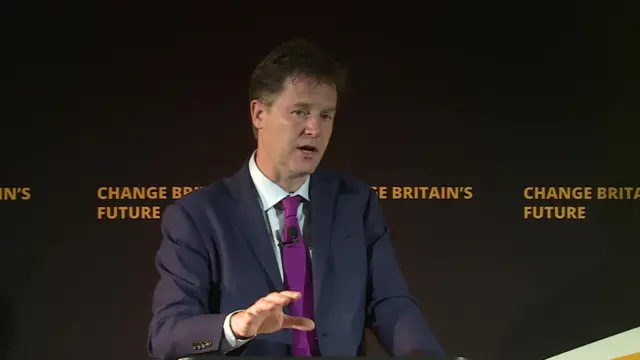
More from Nick Clegg's Brexit speech.
He said Treasury analysis showed that failing to get a Brexit deal, falling back on World Trade Organisation rules, would mean a loss of £45bn to the economy.
He pointed out this was more than the schools budget. To "plug a gap like that" income tax would have to rise by 10p, or public services would have to be cut "on an unimaginable scale".
The Lib Dem Brexit spokesman added: "No deal isn't a cuddly alternative to a poor deal. It's far worse. It's a disaster for Britain."
He questioned Theresa May's suitability to carry out Brexit negotiations, saying: "Negotiating Brexit is going to be a tightrope act. It requires subtlety, creativity, and the ability to win friends. Above all, it requires sure-footedness, to keep on top of dozens of simultaneous, interlocking negotiations.
"Instead, we are being asked to elect a leader who is unsteady in the limelight, incapable of straight-talking, and prone to chaotic u-turns."
Former Deputy Prime Minister Nick Clegg has been giving a speech in central London, driving home his party's feelings about Brexit.
He said people in Britain were about to become "the victims of an act of national self harm" over leaving the EU, and accused Labour and the Conservatives of a "pact of silence" and "one of the most cynical acts of political collusion" in not offering the British people an electoral choice that did not include a hard Brexit.
The Liberal Democrat Brexit spokesman cast doubt on the ability of Theresa May to conduct successful negotiations, calling her electoral performance "brittle" and saying it would not have gone unnoticed in the capital cities of Europe.
He said holidaymakers this summer would notice the impact of Brexit on the price of the euros and dollars they were able to buy and everything "from accommodation to ice cream" would be more expensive.
At home, Mr Clegg added, the impact was being felt on energy bills, petrol and clothes, as earnings failed to keep pace with inflation.
Two mums in Skegness share who they'll be voting for in the general election on the 8 June.
Read MoreWoman's Hour debate
 BBC Radio 4
BBC Radio 4
UKIP's Paul Nuttall says he wouldn't rule out internment of suspected extremists in an effort to combat terrorism.
"I just simply don’t think it would work," says Conservative Amber Rudd. "It's not an effective way of trying to get the right balance."
Labour's Emily Thornberry goes on: "You can make a mistake. If you arrest the wrong Mohammed and you keep him locked up for three months... if he wasn’t radical before he certainly will be now."
Woman's Hour debate
 BBC Radio 4
BBC Radio 4
Theresa May called a "snap general election" with a focus on Brexit, says the SNP's Kirsty Blackman, therefore "this is the wrong time to put in a wholesale review of social care".
She says: "I think we should discuss it like adults after the general election."
Conservative Amber Rudd says: “The fact is this needs to be paid for.”
Either it is it paid for by “someone who has the assets, has the equity”, or it’s paid for by someone young who is “just starting out”, she argues.
Allow X content?
This article contains content provided by X. We ask for your permission before anything is loaded, as they may be using cookies and other technologies. You may want to read X’s cookie policy, external and privacy policy, external before accepting. To view this content choose ‘accept and continue’.
“I have to confess when me and my friends used to run through fields of wheat the farmers weren’t too pleased about that," the prime minister tells ITV's Julie Etchingham.
Woman's Hour debate
 BBC Radio 4
BBC Radio 4
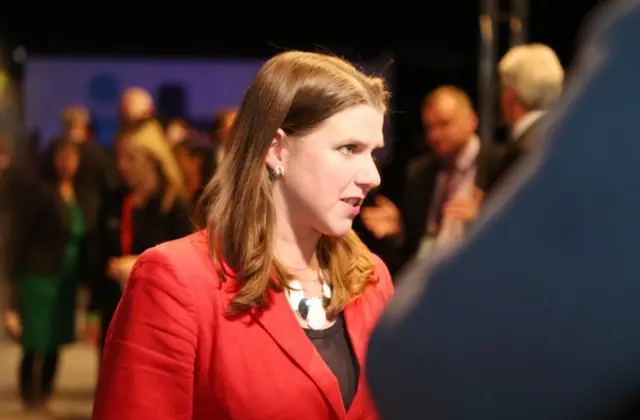 Image source, PA
Image source, PALiberal Democrat Jo Swinson says the basis for cross-party policy on social care should be the recommendations of Sir Andrew Dilnot in a review for the government in 2011.
She proposes "a firm cap of £72,000" on care costs, arguing that the risk should be spread across society rather than "falling disproportionately on a small group of people who happen to be very unlucky".
UKIP's Margot Parker supports helping people to remain in their own homes "as long as possible".
She adds: "We do have to work together. We've got to come up with the right answers."
Torfaen, in the Welsh Valleys, is a Labour stronghold, but as a strong Brexit area, is there a softening of support?
Read MoreThe prime minister speaks to Newsbeat in the latest in a series of interviews with party leaders ahead of the general election.
Read More